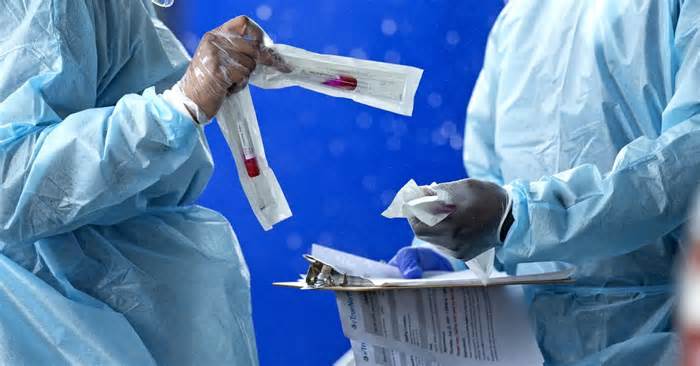The North Carolina Department of Health and Human Services on Saturday reported 1,954 new COVID-19 cases in the state.
26 additional deaths were also reported, bringing the total in the state to 2,160 since the start of the pandemic.
27,034 tests were completed in the last 24 hours across the state. The percent of positive of those tests is at 8%.
1,129 people are currently hospitalized in the state with COVID-19, with 87% of hospitals reporting.
608 ICU beds and 5,871 in-patient beds remain empty in the state.
>> Have questions about the coronavirus pandemic and its impact on the Carolinas? We have an entire section dedicated to coverage of the outbreak — CLICK HERE FOR MORE.
Note: The numbers we show you every day mean everything in how our community recovers from coronavirus — both in terms of healthcare and the economy — but they don’t mean much without the proper context and as much transparency as possible.
New cases vary day by day based on a lot of factors. That can include how long it takes to get results back, so a new case reported today can really be several days old.
The other big metric we watch is the percent of positive cases. This is data we can only get from the state because it’s not as simple as factoring a percent of new cases each day from the number of tests. That’s because test results take days and come from a variety of places.
As of Saturday afternoon, there were 22,066 cases of novel coronavirus (COVID-19) with 2226 deaths due to COVID-19 reported among Mecklenburg County residents. Data from Wednesday, Aug. 5 are presented below.
As of Aug. 5, 2020, 21,470 cases of and 225 deaths due to COVID-19 among county residents were reported to Mecklenburg County Public Health (MCPH).
Highlights about the epidemiology of COVID-19 in Mecklenburg County as of Aug. 5, 2020 include:
The North Carolina Department of Health and Human Services (NCDHHS) Friday took additional steps to protect nursing home residents and staff during the COVID-19 pandemic by issuing a Secretarial Order requiring biweekly staff testing and announcing continued state funding for staff testing through November. The order mandates the existing recommendation for biweekly testing. The Department is also deploying additional infection control support teams to support ongoing efforts to help long-term care facilities prevent and manage outbreaks.
“North Carolina nursing home residents are among the most vulnerable to COVID-19 infection,” said NCDHHS Secretary Mandy Cohen, M.D. “These additional testing and infection control resources enhance the ongoing work to guide and support long-term care facilities as they take extraordinary measures to protect residents and staff during COVID-19.”
Residents are at heightened risk for serious illness from COVID-19 and the communal nature of long-term care facilities can make it difficult to control a COVID-19 outbreak Since the beginning of the pandemic, state leaders have taken aggressive action to protect residents and staff of long-term care facilities, implementing a five-point strategy focused on: prevention, staffing, testing, outbreak management and oversight. DHHS action means that now, fewer long-term care residents are becoming sick when there is an outbreak, and outbreaks are being resolved faster.
In July, NCDHHS conducted baseline testing of residents and staff in North Carolina’s nursing homes with an expectation of completing close to 50,000 tests. Moving forward, today’s order requires all nursing home staff to be retested for COVID-19 every other week in facilities without a confirmed case. Existing guidance requires nursing home staff to be tested weekly if a COVID-19 case has been detected. Facilities will be required to report all test results, and North Carolina will use federal CARES Act funding to help fund testing through November.
As a part of the oversight strategy, the department has already completed on-site infection control inspections of North Carolina’s over 400 nursing homes. These inspections were completed one month ahead of schedule.
In addition to the new testing requirements, NCDHHS is adding ten regional infection control support teams to help long-term care facilities prevent COVID-19 transmission and manage outbreaks that do occur. These teams will provide onsite infection prevention and control help, continuing NCDHHS’s work with long-term care facilities on implementing these protocols.
Today’s actions build on earlier measures North Carolina has taken to protect residents and staff in long-term facilities, including:
Secretarial Order is online here.
A list of additional guidance for long-term care facilities can be found here.
© 2020 Cox Media Group

